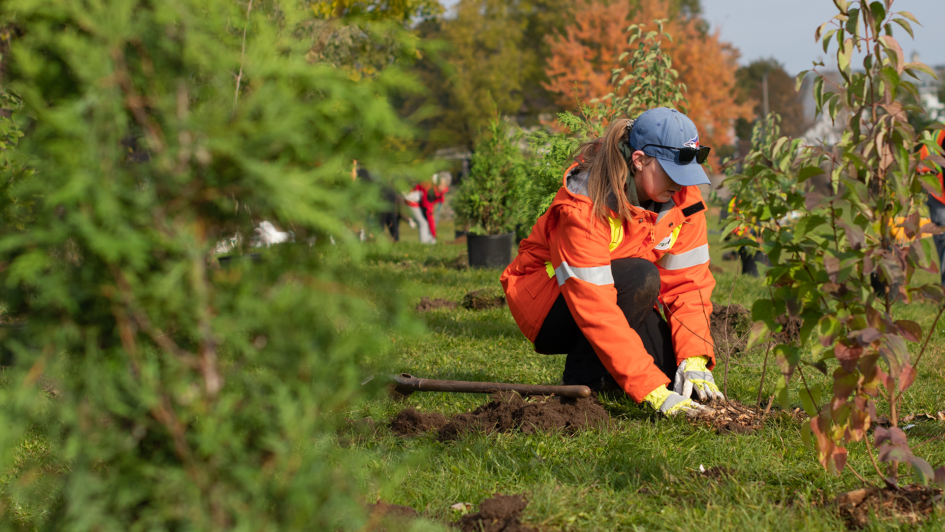
November 18th, 2021
On the brisk morning of Saturday, November 6, undeterred by the cold temperatures, volunteers came together to plant 170 trees at two Cambridge schools: Avenue Road Public School and Manchester Public School. Their work is part of a pilot program led by Sustainable Waterloo Region (SWR) that aims to plant microforests across the region. For these two sites, SWR partnered with the Waterloo Region District School Board (WRDSB), Energy+, EY Canada, the City of Cambridge, the Grand River Conservation Authority (GRCA) and the Ages Foundation.
Allan Taylor, program development manager at SWR, was on hand helping to coordinate the planting efforts at Avenue Road PS. He was impressed by how quickly the volunteers got the trees into the ground.
“It’s incredible,” said Taylor. “We’ve been here a couple of hours…and we’ve planted 115 trees.”
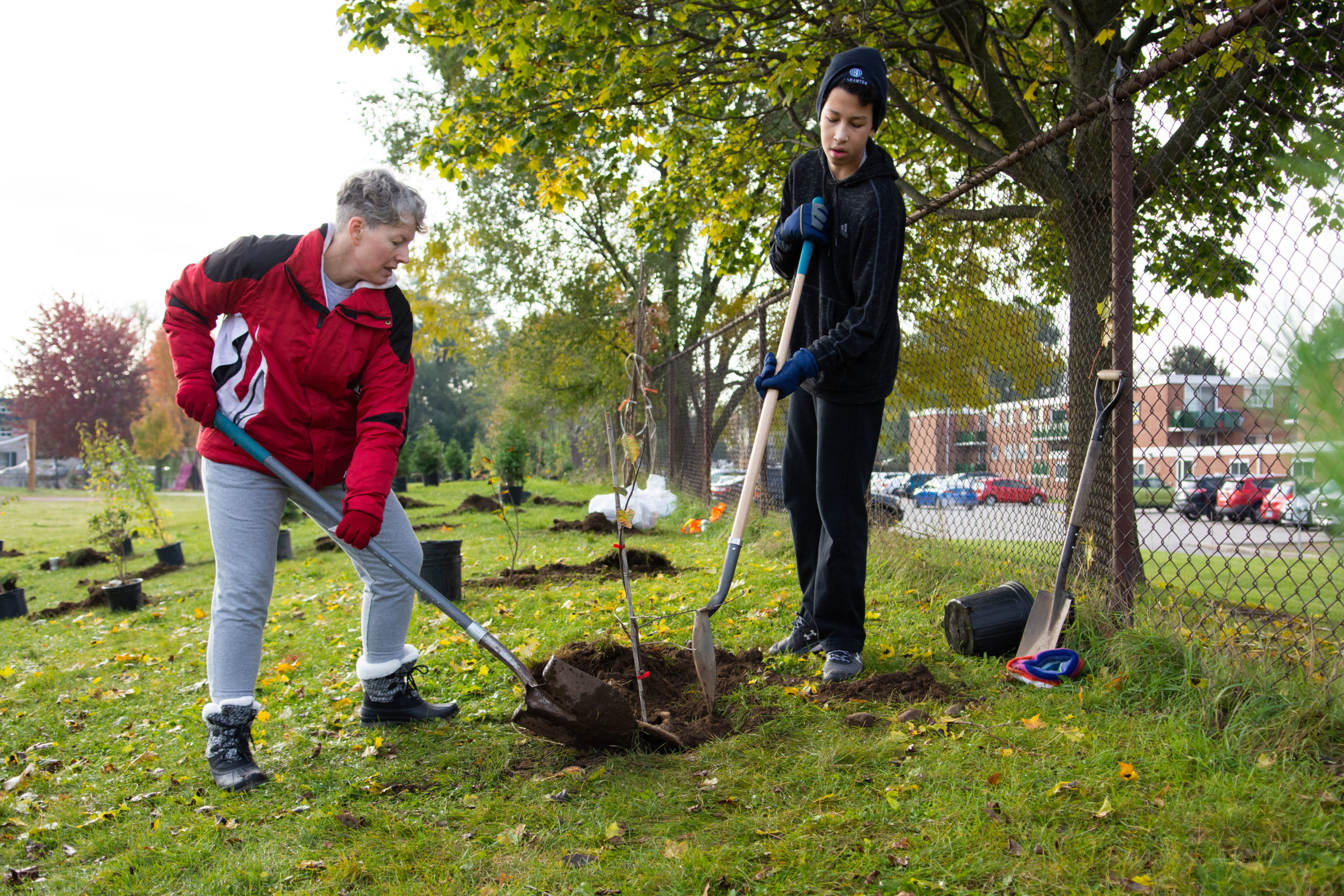
The microforesting efforts at the two schools will bring new life to these greenspaces, and enhance their ability to help fight climate change.
“Trees and microforests provide a number of benefits,” said Taylor. “Trees through their lifetime will suck carbon out of the atmosphere, they provide habitat for insects and small animals and they help with runoff.”
Beyond the welfare of the environment, these spaces will provide enhanced learning opportunities for students, and more teaching options for the staff at the schools. Taylor hopes that these spaces will provide the basis for building relationships with and understanding nature.
Kyra Chisholm, a Program Development Coordinator with SWR, was coordinating the efforts at Manchester PS, and explained that microforests, which could also be described as miniaturized ecosystems, enhance the ability of the individual trees to sequester carbon from the atmosphere. When trees are planted closer together they sequester more carbon and develop a stronger root system and tree canopy.
There are multiple upsides to adding microforests to these two schoolyards. Beyond the reduction in greenhouse gas, they offer a new space for outdoor learning and improve the shade cover in the schoolyards.
“There are so many co-benefits,” said Chisholm. “There’s just no downsides.”
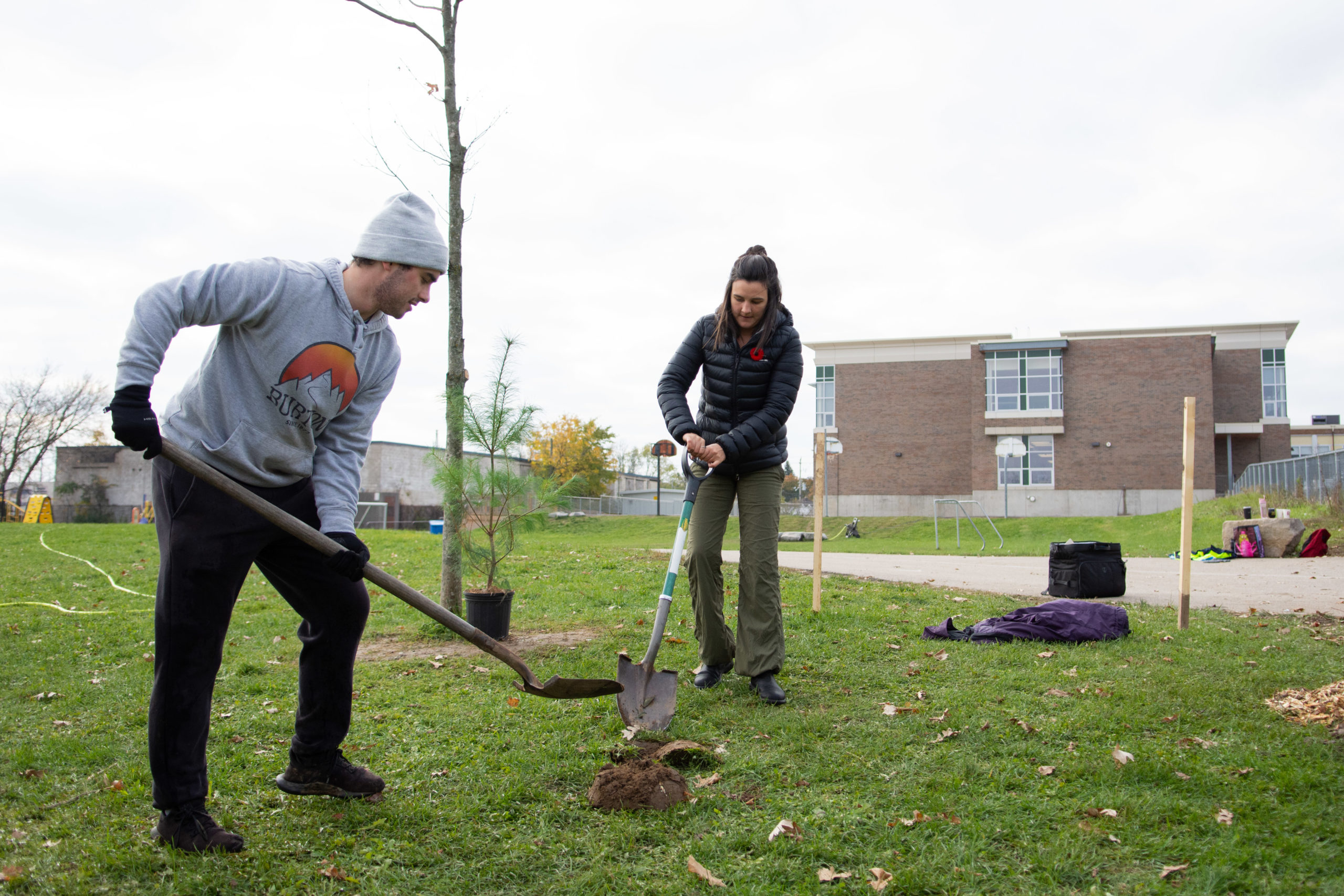
These reasons resonated with those who came out to volunteer, including Aiden, a student at Glenview Park Secondary School (GPSS) in Cambridge. For Aiden, it’s a more meaningful way of collecting volunteer hours, and gives him an opportunity to confront the issue of climate change.
Alexia Kuan and Joe Stuart, volunteers at Manchester PS from EY Canada, echoed these same motivations. Kuan, co-chair of the sustainability committee at the EY office in Waterloo, explained that this initiative fits the three pillars of their goals. Their efforts will help to address climate change, while simultaneously strengthening the ecosystem and improving the greenspaces at the schools.
“There are so many positives,” said Kuan. “All of those things align with what we’re trying to do.”
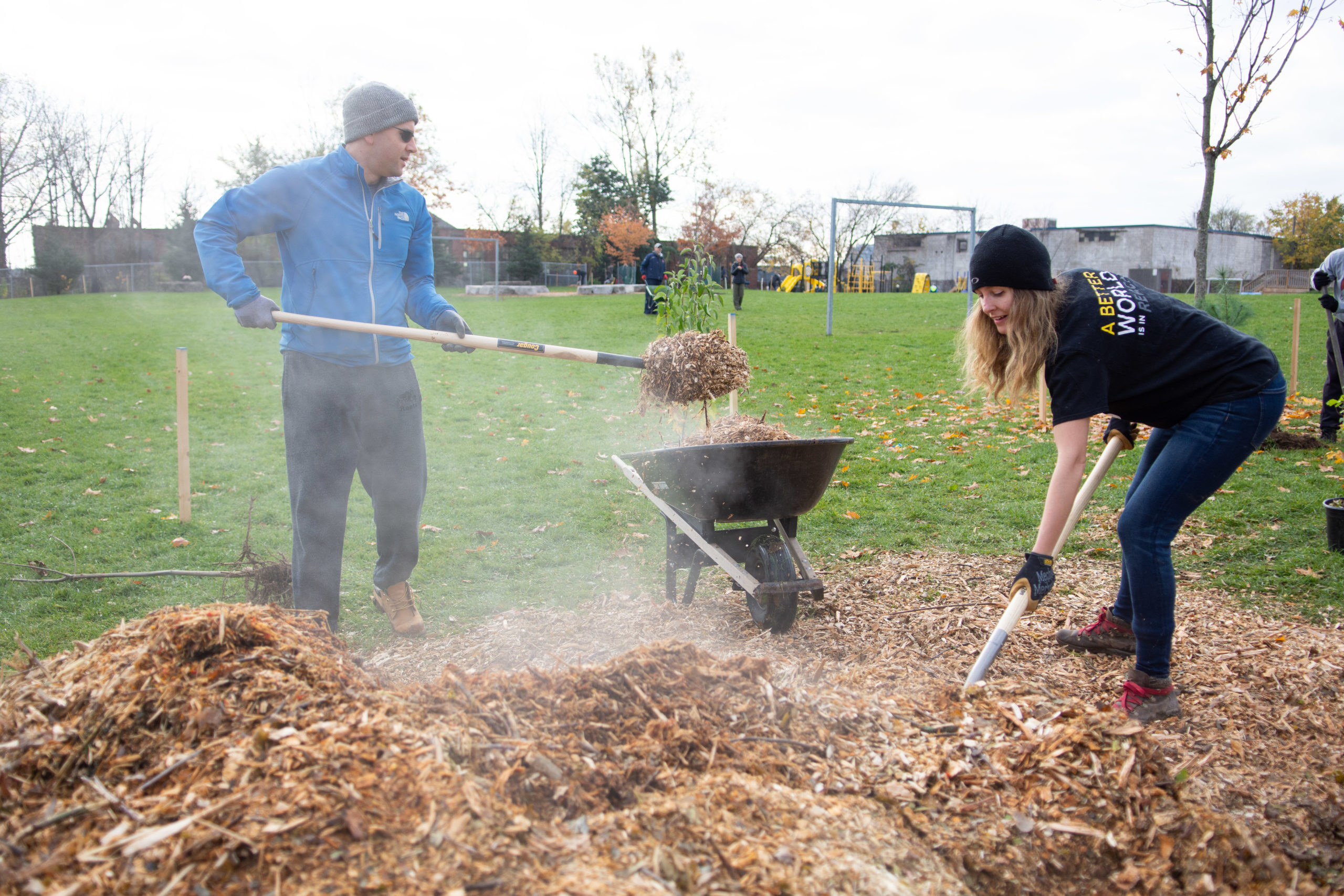
Taylor hopes that these projects are just the beginning of a larger microforesting effort coordinated by SWR across Waterloo Region. They’re continuing to explore funding options and opportunities to make this a reality, but he is nothing but optimistic for the path ahead.
“This is the kind of thing that we do,” said Taylor. “We’d love to see more happening in the future. I’m excited to see what it becomes.”
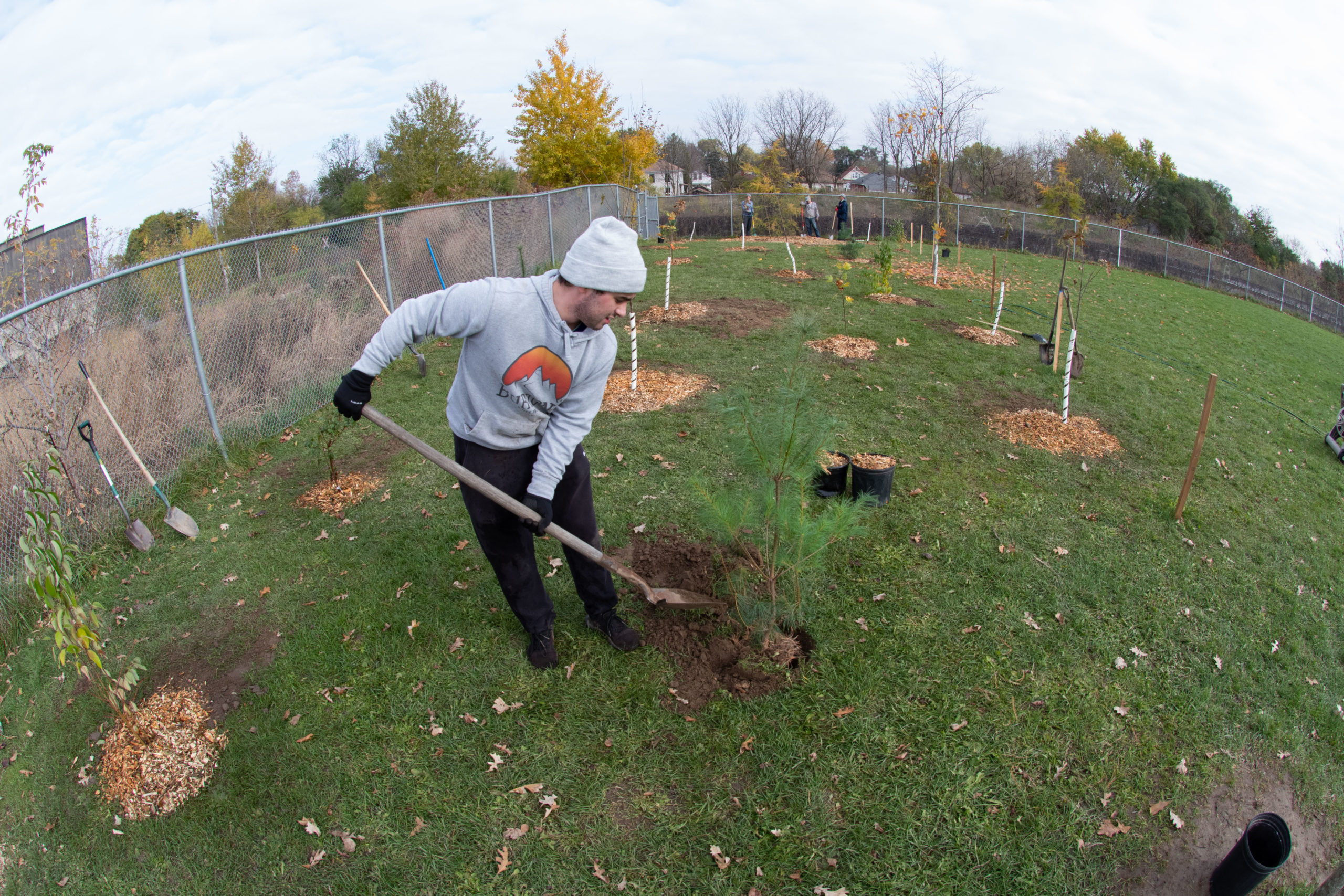
Categories: Feature Tags: Avenue Road Public School · Manchester Public School · Microforest · Planting · Sustainable Waterloo Region (SWR) · Tree

